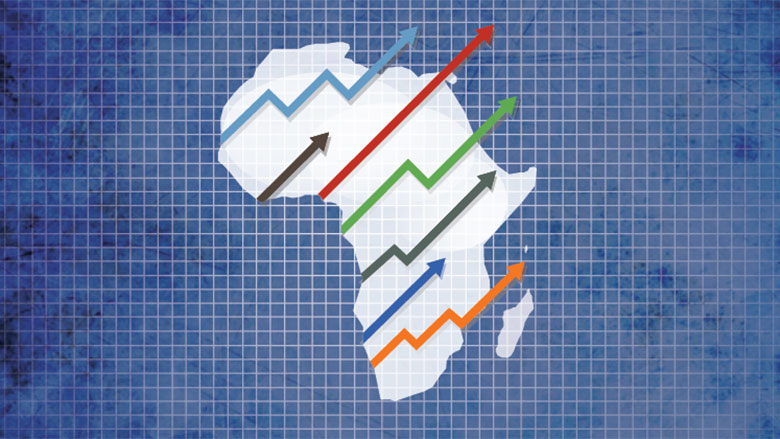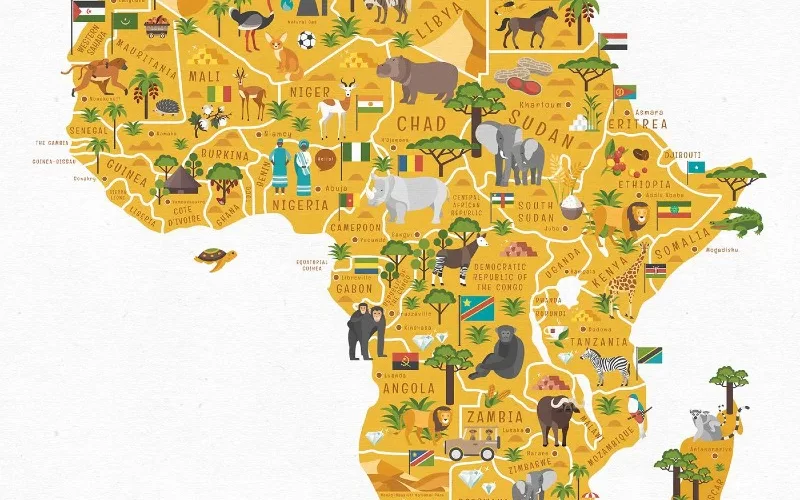Africa Rising: Nine of the World’s 20 Fastest-Growing Economies in 2024
Africa is no stranger to growth narratives, but 2024 marks a particularly striking milestone for the continent. Nine of the world’s 20 fastest-growing economies are in Africa, underscoring its growing role as a global economic powerhouse. This remarkable trajectory reflects diverse dynamics, including improved governance, infrastructure development, investment inflows, and a burgeoning youthful population driving consumption and innovation.
The Driving Forces Behind Africa’s Growth
1. Diversification Beyond Commodities
Historically, African economies have been heavily reliant on commodities like oil, minerals, and agricultural exports. However, the narrative is shifting. Countries such as Rwanda and Kenya are pioneering diversification efforts, investing in technology, tourism, and manufacturing sectors. This transition reduces vulnerability to global commodity price shocks and fosters more sustainable growth.
2. Infrastructure Development
Massive investments in infrastructure—from roads and railways to energy projects—have played a pivotal role. Initiatives like the African Continental Free Trade Area (AfCFTA) have spurred connectivity and intra-African trade, enhancing economies of scale and efficiency. For instance, Ethiopia’s Grand Renaissance Dam promises to transform the country into a regional energy hub.
3. Demographic Dividend
With over 60% of its population under the age of 25, Africa has the world’s youngest demographic. This youthful energy translates into a growing labor force, a burgeoning consumer market, and unparalleled potential for innovation. Governments and private entities are increasingly investing in education and skill development to harness this demographic dividend.
4. Technological Leapfrogging
From mobile banking to e-commerce platforms, African countries are leveraging technology to overcome traditional barriers. The fintech revolution in Nigeria and Kenya’s M-Pesa mobile money platform are examples of how technology can drive financial inclusion and economic growth.
5. Improved Governance and Policy Reforms
Political stability and economic reforms have created an environment conducive to growth. Countries like Ghana and Ivory Coast have implemented policies to attract foreign direct investment (FDI), streamline business processes, and reduce corruption.

The Fastest-Growing Economies in Africa
1. Rwanda: The Beacon of Resilience
Rwanda continues to be a standout performer, with projected GDP growth of over 8% in 2024. The country’s transformation from a war-torn nation to a model of economic reform is remarkable. Key drivers include:
- Investment in ICT: Rwanda’s goal of becoming a regional tech hub has attracted significant investment, with initiatives like the Kigali Innovation City.
- Tourism Boom: The “Visit Rwanda” campaign and investments in gorilla tourism have bolstered revenues.
- Ease of Doing Business: Ranked as one of Africa’s best places to do business, Rwanda’s streamlined regulations have encouraged entrepreneurial growth.
2. Ivory Coast: The Agricultural Powerhouse
Ivory Coast’s economy, forecasted to grow by 7.6% in 2024, is driven by:
- Cocoa Dominance: As the world’s top cocoa producer, Ivory Coast benefits from rising global demand.
- Industrial Expansion: Efforts to add value to raw exports through local processing industries are paying off.
- Infrastructure Upgrades: The expansion of ports and roads enhances trade and logistics.

3. Ethiopia: The Rising Star of East Africa
Despite challenges, Ethiopia’s GDP is expected to grow by 7.5% in 2024, fueled by:
- Energy Projects: The Grand Renaissance Dam is set to boost electricity exports.
- Manufacturing Growth: The government’s industrial parks attract FDI in textiles and apparel.
- Agricultural Reforms: Modernizing agriculture remains a cornerstone of Ethiopia’s growth strategy.
4. Tanzania: Leveraging Natural Gas and Tourism
With an anticipated growth rate of 6.9%, Tanzania’s economy thrives on:
- Natural Gas Reserves: Exploiting vast natural gas resources has attracted multinational investments.
- Tourism Resurgence: Iconic destinations like Serengeti and Zanzibar drive foreign exchange earnings.
- Stable Political Climate: Recent reforms under President Samia Suluhu Hassan have bolstered investor confidence.

5. Senegal: The West African Miracle
Projected to grow by 6.8%, Senegal benefits from:
- Oil and Gas Discoveries: New fields are transforming Senegal into a key energy player.
- Digital Innovation: Dakar’s burgeoning tech scene is positioning Senegal as a digital hub.
- Transport Projects: Projects like the Blaise Diagne International Airport and regional express train enhance connectivity.
6. Ghana: The Gold Coast Revitalized
Ghana’s projected 6.7% growth reflects its economic resilience:
- Diversified Exports: Beyond gold, Ghana is increasing its cocoa and oil output.
- Financial Sector Reforms: Banking sector clean-ups have restored stability and investor trust.
- Pro-Business Policies: Tax incentives and streamlined regulations attract entrepreneurs and investors.
7. Uganda: Tapping into Oil Wealth
With growth pegged at 6.6%, Uganda’s economic prospects are boosted by:
- Oil Sector Development: The Tilenga and Kingfisher oil projects are set to commence production.
- Agriculture Modernization: Efforts to mechanize farming and improve supply chains drive growth.
- Regional Trade: Uganda’s strategic location fosters trade within East Africa.

8. Kenya: The Silicon Savannah
Kenya’s growth rate of 6.4% stems from:
- Tech Ecosystem: Nairobi’s tech scene attracts global venture capital.
- Renewable Energy: Investments in geothermal and wind power reduce energy costs and emissions.
- Agricultural Exports: Tea, coffee, and horticulture remain key foreign exchange earners.
9. Botswana: The Diamond Economy
Botswana, growing at 6.3%, showcases the potential of resource-led development:
- Diamond Beneficiation: Investments in local diamond cutting and polishing industries boost value addition.
- Eco-Tourism: Wildlife-based tourism flourishes under conservation efforts.
- Economic Diversification: Policies focus on reducing reliance on mining.

Challenges and Risks
Despite the optimistic outlook, Africa’s growth story faces challenges:
- Debt Sustainability: Rising public debt levels threaten fiscal stability in several countries.
- Climate Change: Adverse weather events jeopardize agricultural output and infrastructure.
- Geopolitical Tensions: Regional conflicts and global uncertainties could disrupt progress.
- Inequality: Ensuring inclusive growth remains a pressing issue to avoid societal disparities.
The Global Implications of Africa’s Rise
Africa’s economic ascent has significant global ramifications:
- New Investment Opportunities: With rising consumer demand and improved governance, Africa offers lucrative opportunities for global investors.
- Geopolitical Influence: A stronger Africa can play a more prominent role in international forums like the G20 and United Nations.
- Sustainable Development: Africa’s green energy initiatives set a benchmark for balancing growth with environmental stewardship.
Conclusion: Africa’s Time to Shine
Africa’s economic performance in 2024 is a testament to its resilience, innovation, and ambition. With nine of the world’s fastest-growing economies, the continent is poised to shape the global economic landscape. However, sustaining this momentum requires addressing challenges, fostering inclusivity, and leveraging its unique strengths.
As the world watches Africa rise, the continent’s success story serves as both an inspiration and a call to action for governments, investors, and global partners to collaborate and realize Africa’s vast potential.











